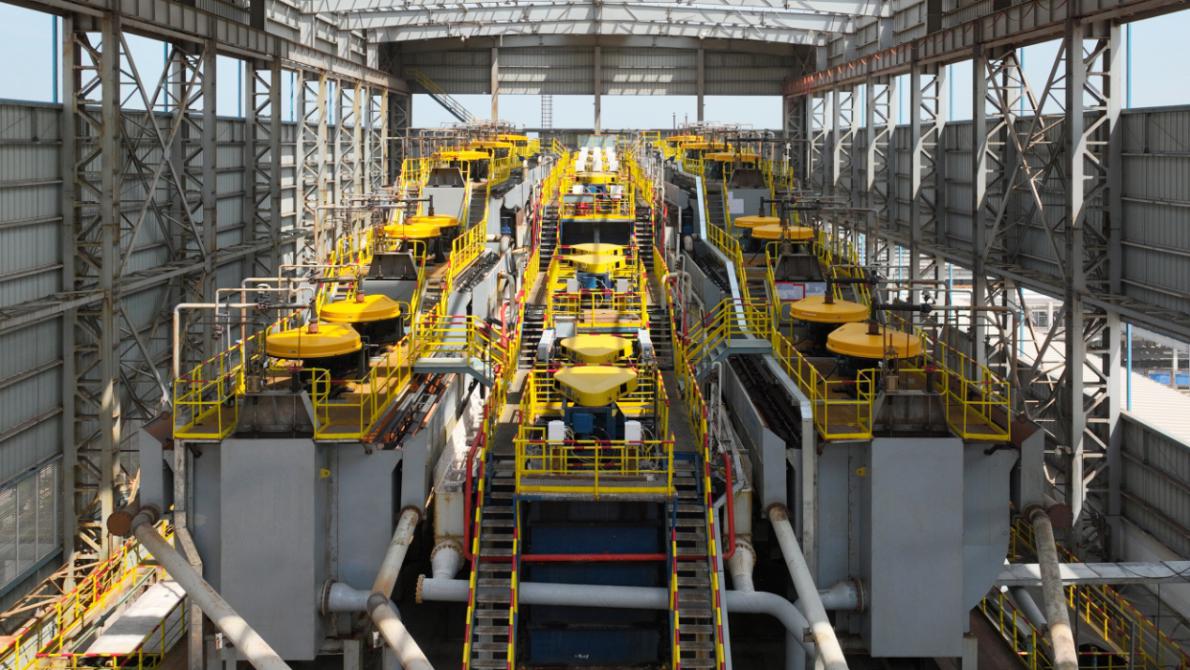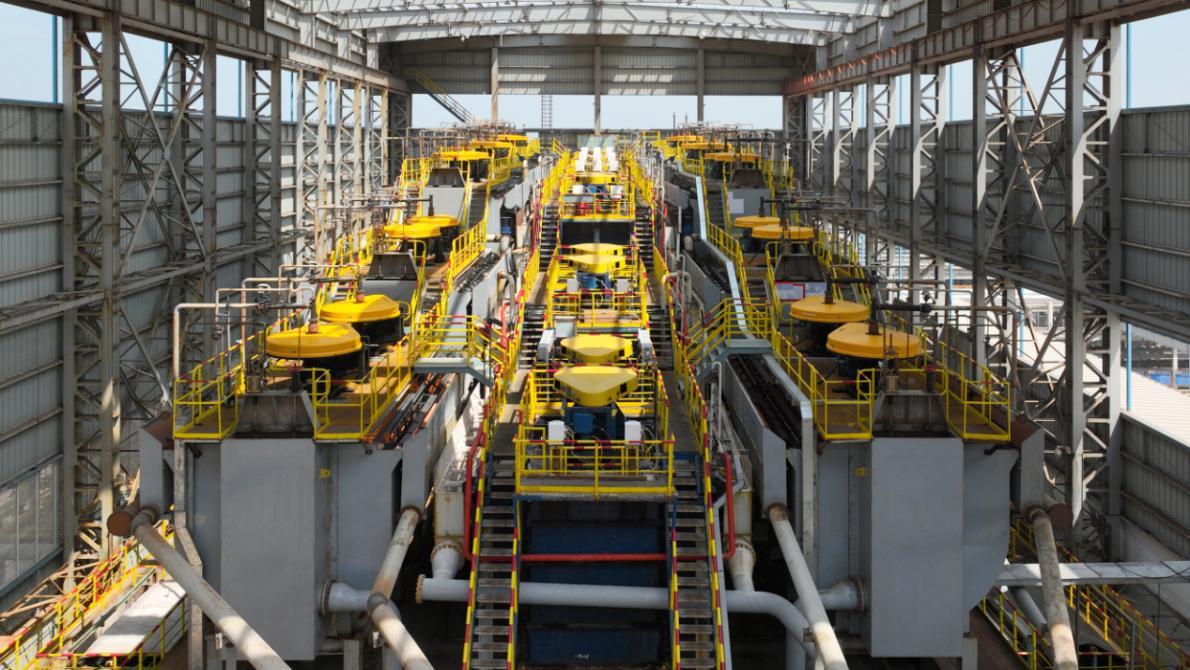
Photo shows the potash production plant of Asia-potash International Investment (Guangzhou) Co.,Ltd. in Laos.
BEIJING, Nov. 7 (Xinhua) -- The potash fertilizer project of Asia-potash International Investment (Guangzhou) Co., Ltd. in Laos is listed in a book compiling 36 Belt and Road cooperation projects conducted by Chinese enterprises.
The compilation, generated by a case study jointly conducted by the Research Center of the State-owned Assets Supervision and Administration Commission of the State Council (SASAC), and China Economic Information Service (CEIS), was presented during the Thematic Forum on Think Tank Exchange of the third Belt and Road Forum for International Cooperation earlier held in Beijing.
Located in Khammuan province in central Laos, the potash fertilizer project enjoys advantageous location as it is adjacent to Highway 13, an important transportation artery that runs through Laos and connects Cambodia and Vietnam. Highway 13 also leads to Vientiane in the north and connects the project with the China-Laos Railway.
Asia-potash International kicked off the 1 million-tonne potash fertilizer re-construction and expansion project, the first of its kind in Laos in April of 2020, which was completed after 17 months.
With the project's output capacity further expanded over time, the company currently holds 214.8 square kilometers of potash mining rights and 48.5 square kilometers of potash prospecting rights in Khammuan province, which could be converted to 1 billion tonnes of pure potassium chloride resources, making it the largest in Asia in terms of potash resource count.
The company strives to achieve a production capacity of 5 million tonnes by 2025 to become a world-class potash supplier, and will further expand to a capacity of 7-10 million tonns/year in the future upon market demand.
The company also initiated a project of the Asia-Potash International Smart Industrial Park in 2022 including a potash fertilizer industrial park and a non-potash industrial park to help promote industrialization in Laos.
The potash fertilizer industrial park is expected to bring in more projects, creating income and jobs for the local community while the non-potash industrial park would better utilize the associated resources of the Lao potash mine, integrate other advantageous resources such as coal and bauxite, and help develop other chemical projects to promote the industrialization of the country.
Along with project investment and construction, the company actively fulfills corporate social responsibility, carrying out poverty alleviation projects, setting up education funds, assisting infrastructure construction, developing modern agriculture, among others, to support Lao development, which is highly recognized by the government and the public. (Edited by Niu Huizhe with Xinhua Silk Road, niuhuizhe@xinhua.org)




 A single purchase
A single purchase









